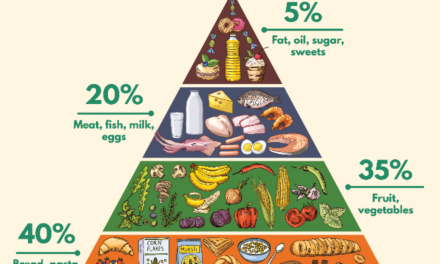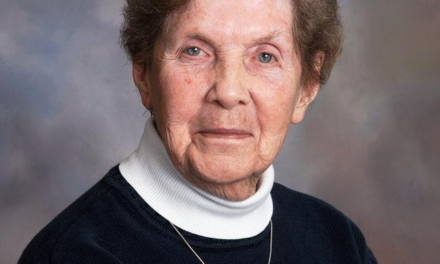Natalie Martini ‘21, Managing Editor

We’ve all heard it before. The overwhelming stories adults would tell us about “the real world” when we were young. First we were told to enjoy high school because college will be a lot more work, then we were told to enjoy college because after we graduate we’ll be working until we die. It feels like they have something discouraging to say for every stage of our lives.
I always found it sort of ironic how much the message shifts as we grow older. When we were in elementary school, it was “you can be anything you want to be”. This then switched to, “anything you want to be as long as it’s not a McDonald’s worker” once we hit middle school. By the time we were in high school this became, “okay, time to actually pick something practical, the world is waiting for your contribution”.
I understand the message is meant to change in order to communicate with a certain age group, but considering how much pressure students are put under today, it seems a bit unfair. We are often pulled in different directions in order to keep up with academic and societal standards. There are so many unspoken rules about the working world, it feels as if the world will try to squeeze us out if we cannot find a useful place among everyone else.
I remember working at my first internship, feeling unqualified and out of place, but trying to adapt to the professional work environment. One day, one of the managers was making conversation with the employees at their desks about college. He began telling about his experience with paying off student loans while having a mortgage, and he made a point of looking at me when he said this. It sounded harmless enough, but with the way he spoke I could not help but feel it was meant to be some sort of humorous warning for me as a current college student to prepare for more stress in my future.
I was not sure how to respond. I was obviously already aware that there are harder experiences to come. At the time of this internship, I was already in a perpetual state of anxiety, wondering if this were the type of job I would fall into when graduating. This was my chance to experience the working world first hand, and I was already miserable, even in a friendly, ideal environment. However, it was ironic to me that this internship was supposed to be an opportunity for me to have a positive workplace experience, and instead this moment felt like I was being given a discouraging message about life after graduation. I know this was not the intention, but it often feels like it was.
This was not the first time an adult has said something like this to me or other college students, and I was in no state of mind to find it funny anymore. It is almost as if they feel inadequate or unhappy in their current situation and project it onto a more impressionable young person. I have experienced this numerous times. It takes the form of a passing conversation, where an adult asks how school is, or what my career plans are, only to create an overwhelming subtext that will drill discouraging thoughts into my mind regarding my future.
I know I am not the only student who has experienced this, or something similar to it. Lately it seems that success is prioritized over happiness for most people. I understand that work is an essential part of living and should be taken seriously. However, some people take it seriously at the expense of their own goals and desires. While I have grown up in a world that claims to be supportive of any path students choose to take, there is still a subtle, yet obvious aversion to anyone who pursues their future in a less conventional way than what is the most popular route.
I think about this every time I see a college commercial on TV, and let me be the one to just say, I am wholeheartedly sick of seeing these advertisements. I am not arguing that individuals who thrive on a college experience and excel with their education are wrong to do so, only that it is never something I resonated with or understood the appeal of. Every one of these commercials presents itself in the same exact form, depicting students in action with smiles on their faces, and uplifting music playing proudly in the background, as if higher education is the only effective way to better one’s life. I will admit I am of a bias standpoint on this subject as I never wanted to go to college in the first place, and I still question if all of it is necessary, even as a graduating senior this semester. However, I cannot help but feel that is due to the constant push of prioritizing education over every other factor in young people’s lives, to the point where practicality discourages our actual goals.
Source: Clipart Panda
Some people want to travel. Some want to move far away from where they grew up. Some want to stay close to home. Some want to live in cities, others want to live on a farm. Some want to work for themselves, and still some want what was once described as the “American Dream”, to settle down with a family and have a steady job. Some people do not care about what it is they do for work, so long as they make enough money. Others do not care if they make merely pennies, as long as they enjoy what they do each day so much that it does not even feel like work.
So if there are a variety of dreams among us, why do most of us end up working office jobs, that in some cases do not even pertain to our degree? I am sure as a college student who still has much to learn about the world, I am overlooking important economic, financial or circumstantial factors that may have more to do with this outcome than I know. However, I cannot help but think the overwhelming number of people who complain to high school or college students about their jobs are not as happy in their present life as they claim to be.
There are multiple instances I can recall where adults would indirectly tell me not to count on being happy in my future, because it will all be drowned out in work. I do believe that what becomes of us is what we make it, but it does not help to hear the affirmations of doubt in the back of our minds coming out of the mouths of those who used to tell us we could be whatever we wanted to be.
Many young people already have issues finding motivation in their work because they do not really know what they want to do. They figure whatever they try will turn to unspoken “I told you so’s”, or that their own fear of failure will be enough to keep them from ever setting a goal again. This is something I, myself, am guilty of. I suppose from here it is our responsibility to grow into people who will not say the same things to younger generations, and end the trend of discouraging advice influenced by our own bad experiences.





